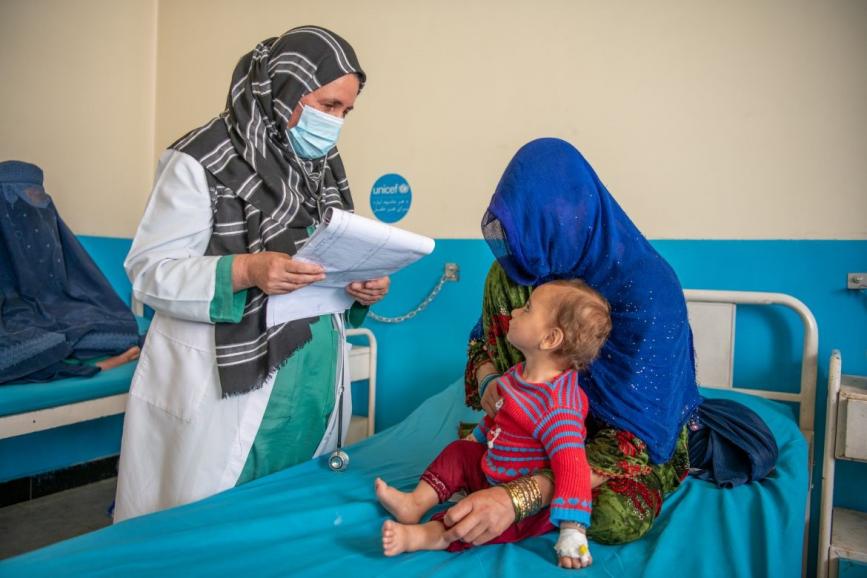Afghanistan Health Emergency Response (HER) Project

The health sector in Afghanistan faces significant challenges marked by inadequate access to health care and a lack of resilience to respond to emergency health situations and outbreaks. Other significant issues include a high maternal mortality ratio, lack of access to essential health services, lack of access to health care facilities for women and girls, undernutrition among children, and increasing disease outbreaks due to poor quality water and sanitation. The health care crisis was further intensified by the COVID-19 pandemic as well as the conflict’s effect on access to essential health services and supplies. The World Bank’s support focuses on increasing the utilization and quality of essential health services, with the aim to improve health and nutrition outcomes for the Afghan people.
The support is being delivered through three key components: (a) urgent provision of essential primary and secondary health services; (b) strengthening service delivery and project coordination; and (c) strengthening demand and access to enhance nutritional outcomes among the most vulnerable.
Urgent provision of essential primary and secondary health services supports the delivery of the Basic Package of Health Services (BPHS) and Essential Package of Hospital Services (EPHS). The BPHS includes services for maternal and newborn care, child health and immunization, public nutrition, communicable disease treatment and control and others. The EPHS includes specialized services for gynecology, obstetrics, neonatal care, nutrition services and others. This support is critical in ensuring delivery of essential health, nutrition, and population services, immunizations, access to nutrition education, and maternal health services.
Strengthening service delivery and project coordination involves improving the quality of health care delivery, strengthening the supply chain for better access to quality medicines and supplies, and strengthening data capabilities. Improving the quality of health care delivery involves supporting quality assessments of health care facilities and offering financial incentives to providers who meet high standards of care. Support to strengthen the health care supply chain and logistics will help ensure the availability of essential medicines and equipment, leading to better access across the country. Support toward enhancing performance management and data capabilities of health care providers will help in making informed decisions and improve service delivery, helping to achieve desired health and nutrition results.
Strengthening demand and access to enhance nutritional outcomes among the most vulnerable involves complementing the provision of health and nutrition services under other project activities, which will contribute to the improved nutritional status of pregnant and breastfeeding women and children under two years of age in selected districts. The project supports social, and behavior change communication to increase the use of maternal and child health and nutrition services and improve related behaviors (e.g., feeding practices). This is complemented by cash transfers to incentivize attendance to social and behavior change communication sessions, which will help beneficiaries with the cost of accessing health facilities as well as increase access to nutritious food.